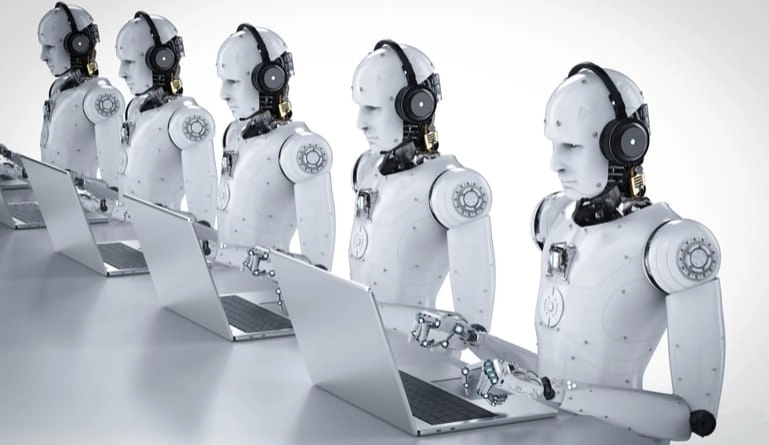Artificial intelligence has led to huge increases in efficiency and accuracy in many businesses, as well as brought greater convenience and organization to the lives of everyday consumers. It’s a fair question, then, to ask: What does the future of AI hold?
There are 4 stages of AI that have been theorized by data scientists, a progression from a useful app to a self-aware piece of programming. With the speed at which technology continues to advance and grow, consumers and businesses alike may wonder how long before the self-aware tech is a feasible prospect and how that will affect society and business.
The 4 Stages of AI
1. Internet AI
This is the simplest stage of AI. Some of what we conceive of as AI today lays in this domain. This kind of reactive AI can predict patterns and understand possibilities, even choosing from various options, the way chatbots do on certain websites. This stage of AI is especially good for repetitive tasks, as it’s usually written to perform one set of specific commands or assignments. It can reliably perform the same tasks over and over, but is limited to that – there is not real learning or engagement. This doesn’t necessarily make it a less valuable stage of AI – indeed, this is the form that has begun our journey into AI that can make our lives easier and more efficient – but it’s an important distinction.
2. Business AI
Business AI has a limited memory. It is the stage of AI that can learn by using past experiences and help drive business with better reporting and serve as the foundation of certain applications. Machine learning and the algorithms that have helped to develop self-driving cars is limited memory artificial intelligence. AI that is able to learn is excellent at classifying and categorization and can help businesses excel at a number of functions, from being able to learn about customer behavior and purchases and suggest additional purchases to help businesses hire the best talent based on current performance metrics.
3. Perception AI
This is the first step into the “future of AI.” A key feature of this perceptive form of AI is the ability to compile and draw from past experiences, much like humans do. While current AI models are able to remember patterns and past actions, they are limited in both their memory (because of true data processing limitations) and also AI’s understanding of memory. AI has not yet reached the threshold where it understands what is relevant.
This theory of AI states that beyond learning – being able to remember actions and predict behavior based on those actions, as well as make recommendations – that future AI learning will really be understanding context and relevance, the way that individuals can interact with different people, different memories, and other information and understand the nuances at play.
4. Autonomous AI
Autonomous AI is what it sounds like – a stage of AI that is self-aware and able to form opinions, thoughts, and even feelings, without any input from humans or programmers. Consciousness means an ability to interact in a meaningful way and interpret data based on more than just statistical figures, but the depth of knowledge and experience. Ultimately, self-aware AI could potentially be an interactive member of an executive board, but AI researchers and developers will first need to understand human consciousness better before they can build artificial consciousness.
It’s hard to say which of the stages of AI will be “best” for the future. What might be most beneficial or convenient for a business may not be deemed best for culture – having self-driving cars to deliver pizzas may be easier or more cost-effective for businesses, but it may cause ill-will in the community if it puts people out of work. Many experts believe that by 2025, there will be features of AI integrated into more aspects of consumer life, from home to work to driving and leisure. The terms “AI’ or “artificial intelligence” will continue to evolve as what used to be difficult tasks become more commonplace and expected. It will be up to businesses – and ultimately, their customers, the public – to decide how to utilize it.





